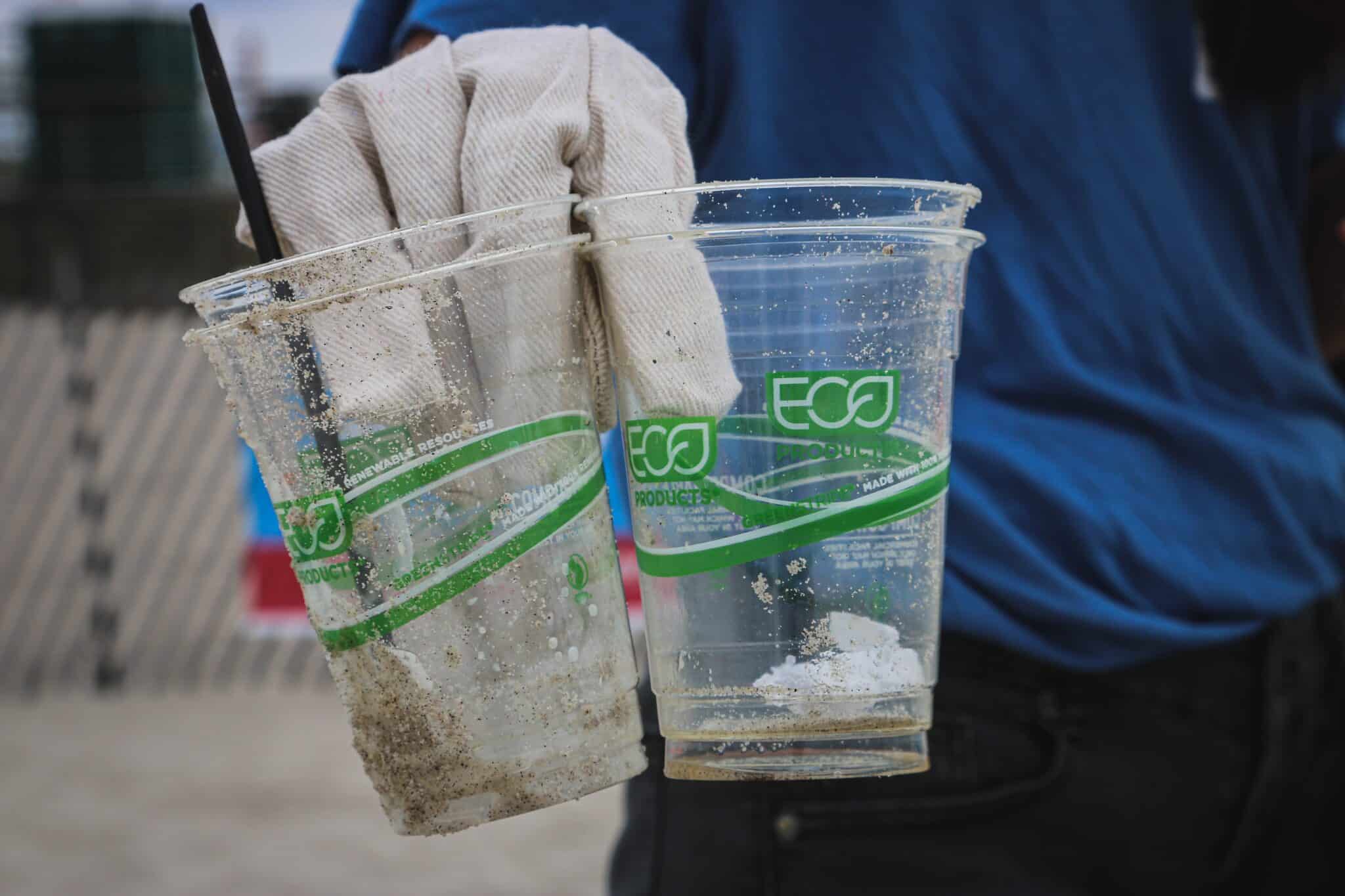How Your Brand Can Avoid the Pitfalls of ‘Greenwashing’
You’ve undoubtedly seen the statements or heard the words – brands trumpeting their efforts to champion a greener tomorrow, loudly patting themselves on the back, and hoping to get noticed for seemingly altruistic deeds and policies. But such declarations are often dismissed with an eye-roll by savvy consumers who can sniff out the difference between faux corporate activism and the real deal.
So how can you avoid falling into the category of “greenwasher”? First, become familiar with what it is, then take note of the 10 signs of greenwashing to avoid.

Getting to Know Greenwashing
With growing consumer interest in sustainability and the environment driving more and more companies to compete for the mantle of “Most Green,” you could say that green is the new black. But that green mantle often doesn’t have much credibility.
That’s because of greenwashing, which is what happens when brands try to paint a false impression that their products or services are more “green” than they really are – usually with the intention of generating extra green for the company.
For brands, greenwashing can be perceived as misleading or downright deceptive, and can jeopardize long-term relationships with them. A Havas Media survey of more than 20,000 consumers worldwide found that global trust in businesses is at an all-time low. When it comes to sustainability messaging, the study found that consumers are particularly skeptical, with 64% seeing sustainability only as a marketing tool.
So, while consumers’ interest in better environmental practices, and the brands that adhere to them has increased, you need to proceed with caution when marketing your own efforts. Because, falling into the greenwashing trap drastically hurts a brand’s reputation and credibility.
When considering your marketing messaging, here are 10 Signs of Greenwashing to avoid:
- Writing Fluffy language
Avoid vague descriptions such as “Natural,” “Environmentally-friendly,” “Non-toxic,” “Eco,” and “Chemical-free.” Instead, be specific and use statements that are readily verifiable or followed by evidence.
- Green Product, Dirty Operations
Don’t claim to be selling a “green” product if the processing or manufacturing of your product has been linked to environmental issues. For example, an organic cotton T-shirt that’s made in a factory that dumps leftover dyes in a river.
- Using Suggestive Imagery
Avoid marketing creative that gives a false green impression, either through the color scheme or irrelevant imagery (e.g., flowers blooming from exhaust pipe).
- Making Irrelevant Claims
Avoid making “green” claims that aren’t relevant to your product to cover up the less-than-green reality. For example, emphasizing recyclable packaging does not compensate for single-use products like plastic cutlery.
- Claiming Best in Class
Don’t claim your product is the environmental “poster child,” because there are always more opportunities for sustainability. Plus, it’s misleading if you claim your product is the best if the competition is pretty terrible to begin with (e.g., “We have the most eco-friendly gas!”).
- Don’t be an Imposter
Don’t claim to be a green hero if your product is widely recognized as having a harmful impact on the environment. Imposters resort to disguising the reality of their environmental wrongdoings, instead of contributing to valuable environmental moves. For example, big fast fashion brands like Zara and H&M have tried to partake in the sustainability movement by incorporating “recycled polyester” or “organic cotton” into clothing products that actually contain a long list of damaging synthetic materials.
- Relying on Scientific Gibberish
Avoid tricking the average consumer with words they don’t understand enough to fact-check. Buyers do not want to decipher terms like, “Cradle-to-Cradle.” Instead, use straightforward terms, such as “Zero-Waste” to point out that there is no waste from the beginning to the end of a product’s life cycle.
- Creating Imaginary Labels
Don’t create environmentally-focused certifications that don’t actually exist. For instance, what does “Green-Certified” even mean?
- Lacking Evidence
Don’t attach a green disclaimer without expanding on specifics. For example, you might claim to be using “sustainably sourced wood” – but where is it actually coming from?
- Fabricating Claims
Steer clear of flaunting outright lies or false data. Don’t boast about your “100% Compostable and Non-Toxic” packaging unless that’s truly the case.
You Can B Smarter About Green Marketing
With these 10 signs of greenwashing to avoid, the question becomes: How can you authentically tell your brand’s sustainability stories to better connect with consumers? As an experienced marketing agency with a mindset of global responsibility and corporate citizenship, here are some tips from our team at Plan B:
B Transparent
Transparency builds trust between people and your brand. Be transparent about how a product is made, packaged, and transported. Do not hide behind meaningless words and imagery, without effective communication about what exactly makes your product or brand more environmentally friendly.
B Specific
Be specific in how your company or product is doing good for the environment. Avoid using fluffy language (as listed above), unless you include specific evidence for those claims. These unregulated and diluted terms attempt to appeal to the eco-conscious consumer but instead are lumped into the greenwash noise.
B Legitimate
Whenever possible, qualify and quantify your claims to clearly communicate environmental benefits. Certifications, when chosen wisely, can boost your green claims, but avoid fake certifications or irrelevant environmental certifications.

B Humble
The business sustainability journey is never-ending. Every single company has an environmental footprint, so steer clear of pretending like you don’t. Talk about goals your brand is working towards and progress, instead of always boasting about what you have already achieved. Put simply, be humble and consumers will trust you more.
Don’t let your company become a washed-up greenwash-er. Drop us a line a Plan B to work with a partner who can help accurately and honestly position your brand as an authentic advocate for the greater good!
You can also read more about Plan B’s journey to B Corp status here.